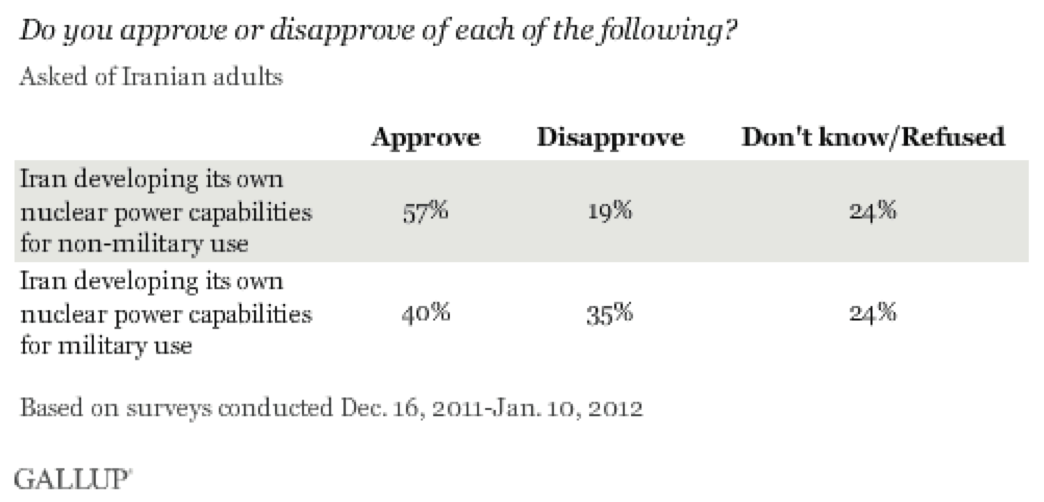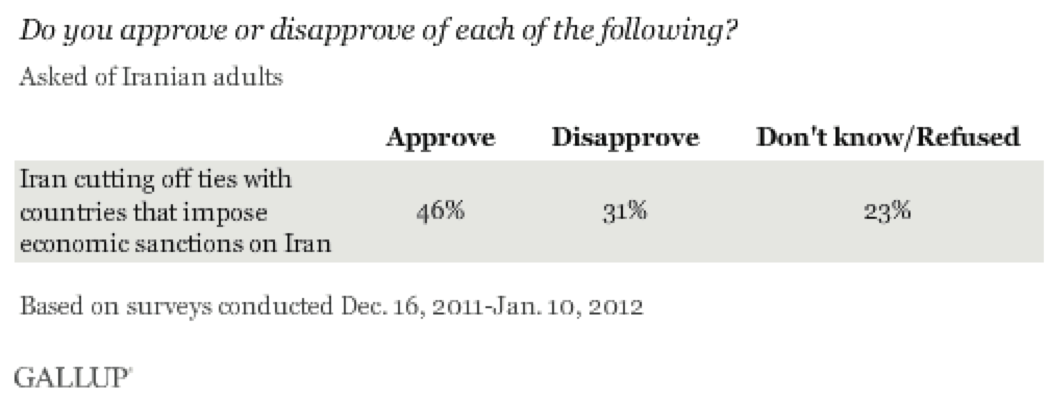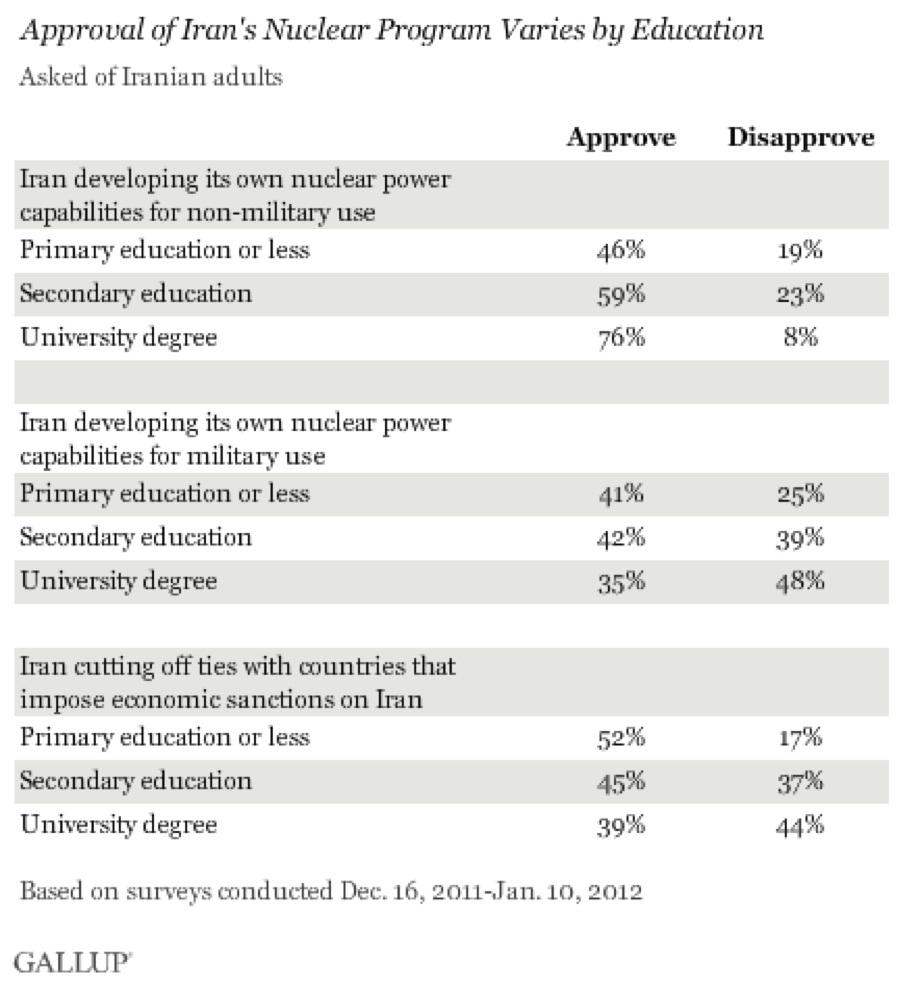According to a 2012 Gallup poll, Iranians are split, 40% to 35%, on nuclear military power. Half support cutting ties with countries that impose sanctions.
WASHINGTON, D. C. -- Iranians are more likely to approve of Iran developing its nuclear power capabilities for non-military use (57%) than for military use (40%). They are more mixed about military use, which Iran insists it is not pursuing, with 40% approving and 35% disapproving. Nearly one in four did not express an opinion either way.

International Atomic Energy Agency (IAEA) inspectors are preparing to return to Iran next week for more talks about the "'possible military dimensions' to Iran's disputed nuclear program." The IAEA's visit may ease tensions following waves of economic sanctions by the United Nations, the U.S., and Western Europe against Iran's program. Following the EU's ban on oil from Iran, Iranian Foreign Ministry spokesman Ramin Mehmanparast said international pressure would not deter his country from pursuing a peaceful nuclear program and warned that sanctioning countries would not find Iran's response "pleasant."
Although most Iranians expect the economic sanctions to hurt their livelihoods, nearly half (46%) approve of cutting diplomatic relations with countries that impose economic sanctions on it. A sizable minority of Iranians, 31%, disapprove of cutting ties.

Highly Educated Iranians More Critical of Military Use of Nuclear Power
Regardless of education level, more Iranians approve than disapprove of Iran developing nuclear capability for non-military use. However, Iranians who completed four years of college are most likely to approve of nuclear power capabilities for non-military use (76%), compared with those with secondary school education (59%) or less (46%). Iranian adults with higher education are also more likely to oppose developing Iran's nuclear power for military purposes, and are more likely to oppose cutting ties with countries that impose economic sanctions on Iran.

Implications
As governments in the West and Israel step up sanctions and weigh potential military options as a solution for stopping Iran's nuclear program, many experts fear that hostile actions taken against Iran will only strengthen the regime internally. Iranians' opinion about their country's own nuclear program remains far from uniform with support for peaceful non-military nuclear use higher than support for military purposes. While the IAEA continues its work in Iran to determine the nature of its nuclear program, Western governments looking for long-term change in Iran should consider how the people of Iran will perceive their actions, particularly when a sizable minority of Iranians do not want to cut ties with these nations.
To view this poll on Gallup's website, click here.
